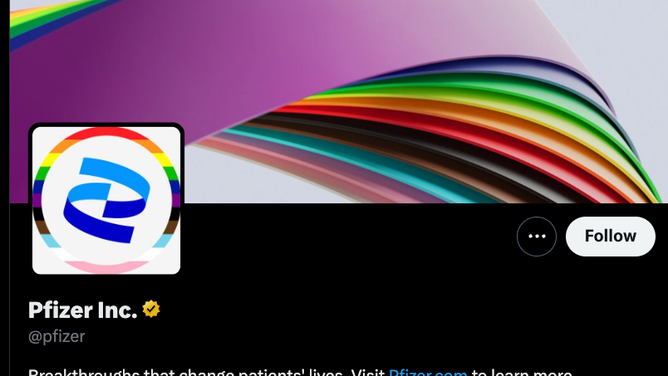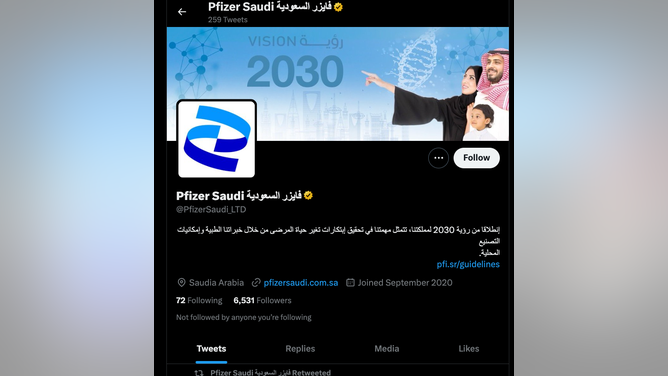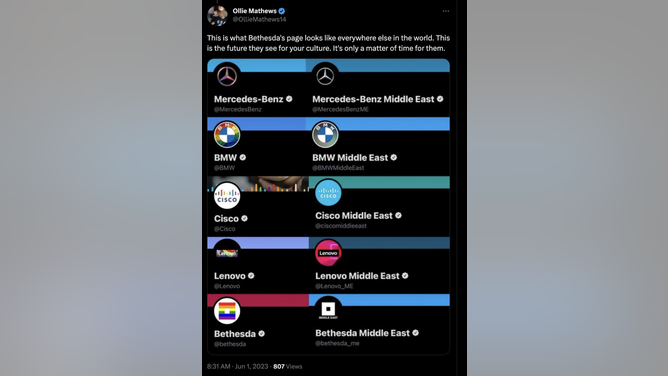Pride Month Is US Marketing Tool Buried In Anti-Gay Nations
The Pride flag is decorated across social media. Each year, corporations replace their avatars with rainbow alternatives for the month of June.
Brands want American consumers to understand they support the LGBTQIA+yxrys community. At the same time, they hope other nations do not.
The very corporations that don pride colors across their U.S. social media pages simultaneously bury their LGBT support elsewhere. They do so specifically, in countries in which same-sex sexual activity is illegal.
Here's the Pfizer Twitter page in the United States:

And here's Pfizer's Twitter page in Saudi Arabia:

The pharmaceutical company supports gay rights. Except in countries where gays do not have rights.
As does Mercedes-Benz.
And BMW.
Oh, and Cisco.
As well as Lenovo.
And Bethesda.

U.S. companies uphold Pride so long as it's advantageous to their own status.
It is in the United States. It's not in the Middle East. Thus, the disparity.
Last June, OutKick published a column exploring the corporate fraudulence of Pride Month. We documented how brands use the rainbow color combination to prove to Americans on which side of the cultural divide they reside. Yet, they then kowtow to governments that suppress and outlaw gay rights.
Particularly Disney.
In 2021, The Walt Disney Co. led the resistance to the Florida Parental Rights in Education, a bill mischaracterized as "Don't Say Gay." However, Disney recently removed LGBTQ content in the Middle East to comply with local censors.
Notably, Disney agreed to not stream the 2022 film Lightyear on Disney+ in the Middle East given the title features a same-gender kiss.
When the Middle East says don't say gay, Disney doesn't say gay.
Warner Bros. Discovery, the parent company of CNN, also supports Pride when beneficial.
In the U.S., Warner Bros. was quite proud of a scene from Fantastic Beasts 3 that alludes to homosexuality. But in China, the studio removed the scene entirely at the behest of the Chinese Communist Party.
"References to a gay relationship in Fantastic Beasts: The Secrets of Dumbledore were edited out of the movie by Warner Bros. for the film’s release in China. Only six seconds of the movie’s 142-minute runtime were removed. Dialogue that was edited out alluded to the romantic past between male characters Dumbledore (Jude Law) and Grindelwald (Mads Mikkelsen). Harry Potter author J.K. Rowling revealed Dumbledore was gay in 2009, but the movies had never explicitly referenced the character’s sexuality until this third Fantastic Beasts entry," reported Variety.
The disparate treatment of Pride Month in the U.S. versus elsewhere proves the campaign is rooted not in merit, but in perceived perception.
Wealthy U.S. suits weaponize the LGBT community for their own gain, just as they did the black community in 2020 when brands plastered "BLM" across their web pages.
So, when you see Bud Light and Target back gender appropriation, an escalation of the Pride Movement, understand that their support is not genuine.
It's opportunistic.
Executives understand the consequences of treating gender like a mask, but ignore the ramifications in favor of anticipated status gain.
Wokeness, at its core, is a self-serving quest for leaders to enrich themselves via their purported support for so-called marginalized groups.
Social justice branding is inauthenticity, inconsistent, and merely an opportunity.
Pride Month demonstrates the self-righteous nature of U.S. corporations. To them, Pride colors are not a symbol of support. Rather, they're a means to better the brand's cultural image.
The rainbow flag is a marketing tool.